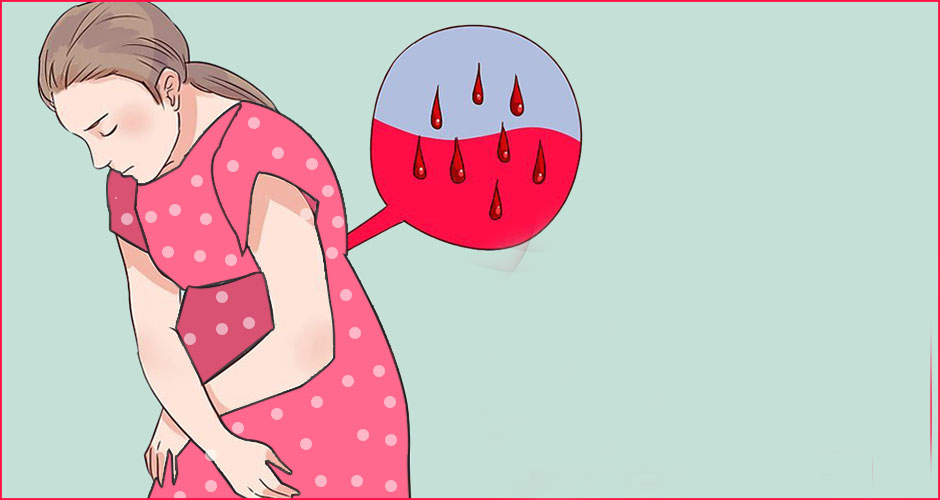Bleeding in the vagina can occur for various reasons and is a common symptom of several medical conditions. Some of the most common causes of vaginal bleeding include:
- Menstruation: This is the regular shedding of the uterine lining that occurs approximately once a month in females who have reached puberty.
- Pregnancy: Vaginal bleeding during pregnancy can indicate a miscarriage, ectopic pregnancy, or other complications.
- Hormonal imbalances: Hormonal imbalances can cause irregular bleeding or spotting between periods.
- Infections: Certain infections such as sexually transmitted infections (STIs) or vaginal infections can cause vaginal bleeding.
- Fibroids or polyps: These are noncancerous growths that can occur in the uterus or cervix and can cause bleeding.
- Cancer: In rare cases, vaginal bleeding can be a sign of cervical, ovarian, or uterine cancer.
Vaginal bleeding during pregnancy.
Vaginal bleeding during pregnancy can be a concerning symptom and may indicate a potential complication.

There are several possible causes of vaginal bleeding during pregnancy, including:
- Miscarriage: This is the loss of a pregnancy before 20 weeks gestation. Vaginal bleeding is a common symptom of miscarriage.
- Ectopic pregnancy: This is a serious condition where the fertilized egg implants outside the uterus, usually in the fallopian tube. Vaginal bleeding, along with severe pain on one side of the abdomen, is a common symptom of ectopic pregnancy.
- Placenta previa: This is a condition where the placenta partially or completely covers the cervix, which can cause bleeding.
- Placental abruption: This is a serious condition where the placenta separates from the uterus before delivery, which can cause vaginal bleeding and other complications.
If you are experiencing vaginal bleeding during pregnancy, it is important to contact your healthcare provider immediately for an evaluation. Depending on the cause and severity of the bleeding, your healthcare provider may recommend monitoring, medication, or in severe cases, emergency medical treatment.
Miscarriage
Miscarriage is the loss of a pregnancy before 20 weeks gestation. It is a relatively common experience, with approximately 10-20% of pregnancies ending in miscarriage. The most common cause of miscarriage is chromosomal abnormalities in the developing fetus, which typically occur spontaneously and are not related to any specific cause.
Some of the common symptoms of miscarriage include vaginal bleeding, cramping, and the passing of tissue or clots from the vagina. However, not all women experience symptoms, and some may not realize they have had a miscarriage until a routine ultrasound or other medical evaluation.
Other possible causes of miscarriage include hormonal imbalances, maternal age, infections, autoimmune disorders, and certain medical conditions such as uncontrolled diabetes or thyroid disease. In some cases, lifestyle factors such as smoking, alcohol consumption, and drug use may also increase the risk of miscarriage.
If you suspect you are having a miscarriage or have experienced a miscarriage, it is important to seek medical attention from your healthcare provider. Treatment for a miscarriage depends on the specific circumstances, but may include monitoring, medication, or surgical intervention to remove any remaining tissue from the uterus. Additionally, your healthcare provider may offer emotional support or referral to counseling services to help you cope with the experience.
Miscarriages caused by abortion pills
Abortion pills can cause a miscarriage. This can occur if the medications are taken incorrectly or if the pregnancy is ectopic (outside the uterus). In such cases, the medications may not work as intended and could lead to complications such as incomplete abortion, infection, or bleeding.
It is important to note that abortion pills should only be used under the supervision of a healthcare provider and according to their instructions. If you are considering abortion pills or have taken them and are experiencing symptoms such as heavy bleeding, severe pain, or signs of infection, you should seek medical attention immediately.
It is also important to understand that the use of abortion pills does not increase the risk of miscarriage in future pregnancies. Women who have had a medical abortion can go on to have healthy pregnancies and deliveries in the future.




